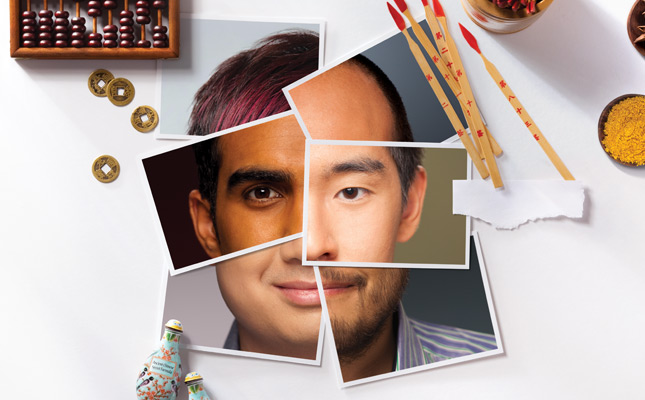Self/Split embodies the Asian American experience
Before a packed Ground Zero audience last night, four Asian diasporic artists spoke of identity, displacement, and finally, finding solace in creativity. The Visions & Voices event, which featured performances from Sam Chanse, D’Lo, Nicolas Wong and Chiwan Choi, tackled weighty topics from sexuality to immigrant identity, through mediums that we often don’t see from Asian Americans in the U.S. This group of performing artists hailed from backgrounds that were just as diverse as the narratives they shared, with roots in Hong Kong, New York and Sri Lanka — just to name a few.
Though each artist grew up under different circumstances, what they all shared in common was the sense that they had lived their lives under multiple identities, hence the event’s namesake, Self/Split. Though all four artists can be considered to be of the Asian diaspora, Sam Chanse mentioned that the Asian American issues — especially pertaining to the topic of identity — didn’t just apply to Asian Americans, but to everyone.
“Asian American issues are universal. You don’t have to be Asian American to understand oppression, to be in the margin, or smell your mother’s cooking — everyone can smell,” she said with a wry finish.
D’Lo’s story was more personal, focused on experiences regarding being transgender and coming out. Chiwan Choi performed a somber poem that explored his experience of being “abducted” from his native Korea, to adjust to a new life in South America, a move that was his parents’ choice, not his. He spoke of memory and how language and other details have since become blurred in his mind. He realizes that his past is simply something artificial that is constructed out of the present visual cues, and that nothing he remembers can truly be verified. Choi believes that with each shift in his life, a part of his identity had been lost. He spoke of the relatable idea of wanting to go back in time, to see who he was before fragments of his identity split and were lost forever, but also acknowledging that it was poetry that could help him go forward to find what had been lost in the past.
Nicolas Wong also told a personal narrative, a story involving his dad’s illness to the trend in Mainland China to be giving birth in Hong Kong, where he is from originally. He spoke of how local Hong Kong women felt that their healthcare resources were being exploited. Sam Chanse shared a fictional narrative sprinkled with humor, where she portrayed multiple characters until finally exploring the details of her own identity. She too spoke of her path into the arts, and how it played a role into solidifying her identity until the point of today.
In a country with a fairly large Asian demographic, I still find it strange that Asian Americans are still underrepresented in the arts and literary communities. The experience last night felt like a rare one, when it shouldn’t have been. One of the largest takeaways from the evening was how varied each artist’s story was, both in structure and experience. It went to show that there is no single Asian American experience, no box that Asian poetry or Asian art could fit squarely into.
Viviane Eng is a freshman majoring in print and digital journalism. Her column, “Among Us & Other Things,” runs Thursdays.

